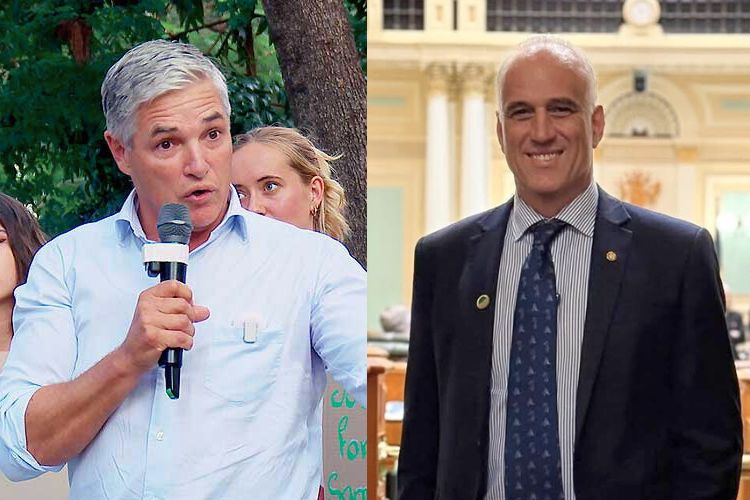
The Coronavirus, Climate Change and C.S. Lewis
As I write this article, I am about to board an almost deserted plane from Northern Thailand bound for Bangkok and then hopefully, later this evening, on to Sydney. There is, however, a palpable sense of uneasiness—and even dread—amongst the passengers. Nearly everyone is wearing facemasks, avoiding all physical touch, and everyone is constantly washing their hands with a strong alcohol foam.
Considering the rapid global spread of the disease, as well as dire projections of even further contagion, those measures are not unreasonable. But it’s the level of existential fear that stands out the most. By the way, for an inspiring response from a Christian pastor living at the epicentre of the pandemic, see the following link.
It was only a few short months ago that the world was in the grip of climate hysteria, with Australia suffering one of the worst bushfire seasons on record. Many on the left took this as an opportunity to berate the Prime Minister for not adopting a more aggressive progressive stance on the issue of climate change.
But while not even the Greens have tried to blame ScoMo for this latest disaster, that hasn’t stopped others from making the tenuous link between the coronavirus and climate change. Ironically, no one seems to be holding the Chinese Communist Party (CCP) accountable for censoring, imprisoning, and threatening Chinese nationals who spoke out about the outbreak before it was released by CCP-approved news outlets.
Thankfully, nearly all of the fires have now been extinguished, and people affected are starting to rebuild their lives, in no small part to the remarkable generosity of people from around the world. But it’s the imminent threat of contagion that has knocked the stuffing out of our arrogant Western pride.
Back in 1948, C.S. Lewis—of The Chronicles of Narnia fame— wrote an essay titled, “On Living in an Atomic Age”. It can be found in the book, Present Concerns: Journalistic Essays. In it he talks about the anxiety that the majority of people in his day had regarding the threat of nuclear war. Once again, it was a legitimate concern. Lewis wrote this:
In one way we think a great deal too much of the atomic bomb. “How are we to live in an atomic age?” I am tempted to reply: “Why, as you would have lived in the sixteenth century when the plague visited London almost every year, or as you would have lived in a Viking age when raiders from Scandinavia might land and cut your throat any night; or indeed, as you are already living in an age of cancer, an age of syphilis, an age of paralysis, an age of air raids, an age of railway accidents, an age of motor accidents.”
In other words, do not let us begin by exaggerating the novelty of our situation. Believe me, dear sir or madam, you and all whom you love were already sentenced to death before the atomic bomb was invented: and quite a high percentage of us were going to die in unpleasant ways. We had, indeed, one very great advantage over our ancestors—anesthetics; but we have that still. It is perfectly ridiculous to go about whimpering and drawing long faces because the scientists have added one more chance of painful and premature death to a world which already bristled with such chances and in which death itself was not a chance at all, but a certainty.
This is the first point to be made: and the first action to be taken is to pull ourselves together. If we are all going to be destroyed by an atomic bomb, let that bomb when it comes find us doing sensible and human things—praying, working, teaching, reading, listening to music, bathing the children, playing tennis, chatting to our friends over a pint and a game of darts—not huddled together like frightened sheep and thinking about bombs. They may break our bodies (a microbe can do that) but they need not dominate our minds.
Without doubt the international community is facing a serious medical crisis. But it’s at times like this that the philosophical and spiritual foundations of our lives are exposed. As Martin Luther wrote in 1527 in his tract, Whether One May Flee from a Deadly Plague:
First, one must admonish the people to attend church and listen to the sermon so that they learn through God’s Word how to live and how to die.
Luther went on to outline many practical and pastoral responsibilities as to how Christians in particular should respond. But it’s during a time of imminent physical danger, we realise that we are not as in control of our destinies like we often assume. For the virus does not discriminate between rich and poor, East and West, or even male and… well everything in between.
[Photo by Macau Photo Agency on Unsplash]3 Comments
Leave A Comment
Recent Articles:
16 February 2026
6 MINS
The Palestinian Authority’s draft constitution omits Jewish ties to Jerusalem, entrenches Sharia law, and formalises “martyrs” payments—raising serious doubts about coexistence and the viability of a traditional two-state solution.
16 February 2026
2.7 MINS
Ten people are dead after a mass shooting by transgender-identifying Jesse van Rootselaar at Tumbler Ridge Secondary School in British Columbia, Canada, with police investigating motives as the small community grapples with shock and grief.
13 February 2026
2.9 MINS
Encourage these politicians who've bravely stood for the unborn this week, after thousands of Aussies prayed and fasted for life. To everyone who prayed: thank you.
13 February 2026
3.3 MINS
New South Wales Police defend their firm response to pro-Hamas protesters in Sydney, saying officers lawfully cleared escalating unrest while balancing security, public safety and religious sensitivities.
12 February 2026
4.5 MINS
Barnaby Joyce defends his defection to One Nation, warning of economic collapse, mass migration pressures and political “sanitisation,” pledging to restore conservative principles and national resilience.
12 February 2026
5.4 MINS
Robbie Katter’s motion to overturn the Queensland parliament ban on abortion debate has failed, but not before one LNP MP sensationally voted against his party due to his pro-life convictions.
12 February 2026
3 MINS
A young law student’s unexpected conversion abroad set him on a lifelong path of faith, law and public advocacy — culminating in his decision to stand for Family First.















































I agree. Thank you and God bless.
This is spot on, esp.CSLewic quote.
Great to be encouraged by your blog too.
Lord bless and keep you.
Your blog is so good. Worthy of sharing and the best reF yet.
Thanks and God bless.